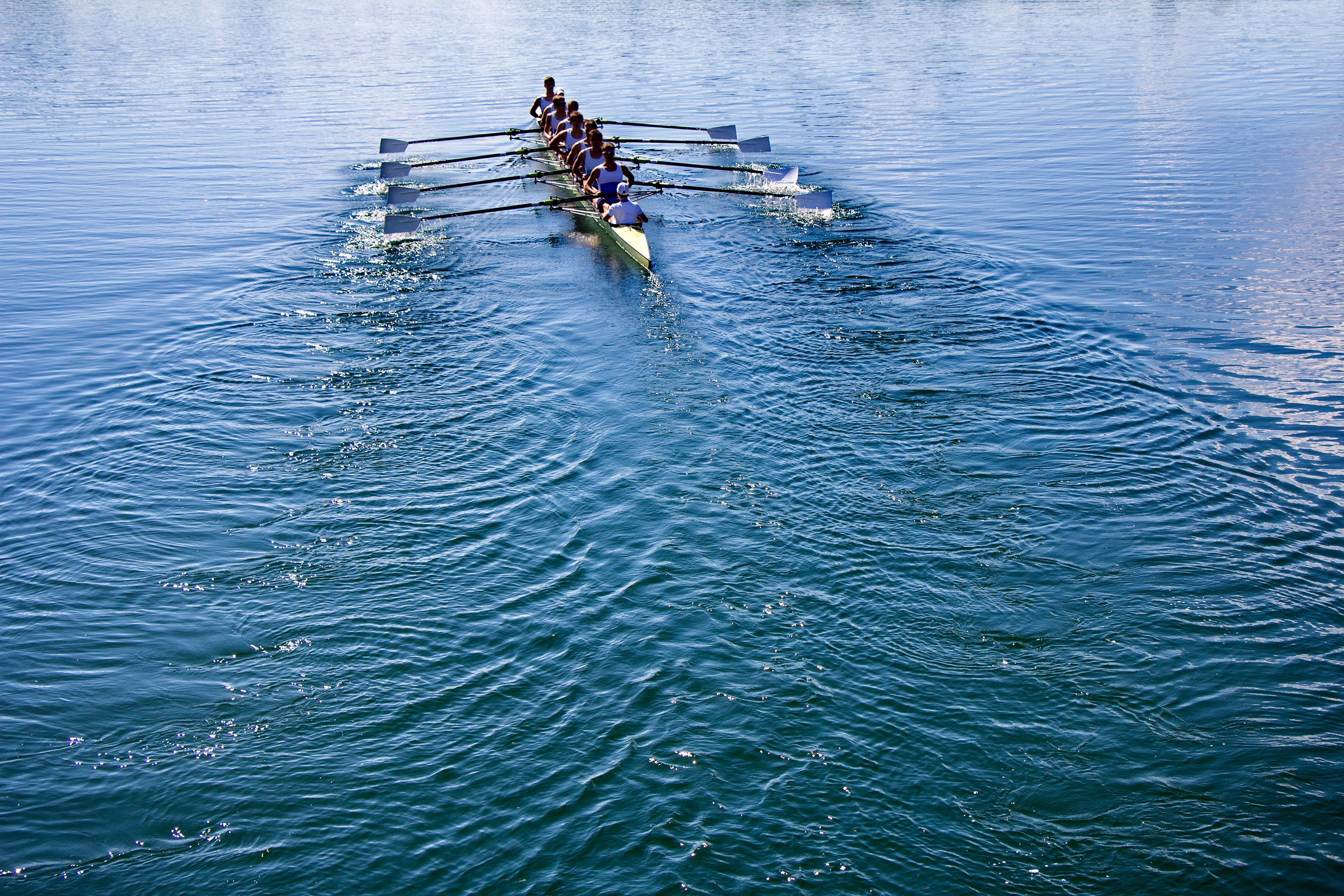Supporting Collegiate Club Rowing

Supporting Collegiate Club Rowing
Collegiate club rowing offers students leadership experience and community but requires solutions to improve safety, provide more education and awareness, and build better governance support.
Collegiate club rowing is getting talked about. The hottest topics are the loss of athletic department status, especially for men's teams, what collegiate club rowing really means, and the significant issue of safety. These conversations matter. Collegiate club rowing is growing. It is time for a conversation about how to better support and improve it. Lessons from collegiate club rowing can also apply to all clubs.
Collegiate club rowing background
First, a quick primer on collegiate rowing in the United States for those not university or college rowers, parents, coaches, or alumni. Collegiate means university or college. Varsity can refer to the best crew or boat at any college or university. Varsity is also frequently used when rowing is an official university sport, primarily funded and run by the institution's athletic department. This is the usage we will follow in this post. Those rowers do not pay fees to row, and some have been recruited to the university on rowing scholarships. Women's varsity crews race at the NCAA (National Collegiate Athletic Association) Championship, while men's varsity crews participate in IRA (Intercollegiate Rowing Association) regattas. Rowing teams not supported by the athletic department are club crews. While there are variations, club teams are primarily student-run, students pay fees to participate, and the connection to the institution is through student associations or recreation departments. Club crews are not permitted to race at NCAA or IRA National Championships, so their national championship is run by ACRA (American College Rowing Association).
In May 2023, row2k.com published a three-part series titled "ACRA Enters a New Era" written by Greg Hartsuff, the long-time club coach at the University of Michigan. Coach Hartsuff describes the history behind ACRA, discusses transitioning from varsity to club, and offers advice for all college rowing coaches. And he makes the pitch for collegiate club rowing.
The benefits of collegiate club rowing
Stella Christensen knows all about collegiate club rowing. A recent recipient of a NK Sports Grant, Stella is in her sophomore year at the University of Minnesota. She coxes for the Minnesota Men's Crew, a club team. In spring 2023, Stella coxed the novice men's four to become the ACRA national champions.
When selecting her university, Stella had offers from IRA schools. She appreciated what varsity rowing would be like through her older sister, who coxed the women's varsity crew at the University of Southern California. Annika won an NK Sports Grant in 2017. Ultimately, Stella chose the University of Minnesota partly because of its reputation for a strong club team. She speaks enthusiastically about the depth of dedication of the club athletes. The culture of her team is what really makes them successful, and the club creates a fantastic community for the athletes. She is also excited that club rowing is growing. Many others echo this. Dan Wolleben, President of ACRA, says there is a genuine love for rowing in club teams. They train just as hard as varsity teams, they often have administrative and other responsibilities and have to pay to row. The caliber of rowing can be very high in club teams, with national team rowers and Olympians coming from club programs.
Challenges faced by collegiate clubs
Coaching at a collegiate club that students entirely run is a big change for Minnesota Men's Rowing coach Scott Armstrong. He was a successful varsity coach at Dartmouth for many years. At some collegiate club rowing teams, such as at Bucknell University, when Dan Wolleben coaches, the coach leads everything, with complete control on the budget, safety, and other decisions. For Scott, it is the opposite. The student board makes all decisions, including a budget, hiring coaches, which regattas to attend and travel logistics.
Scott recognizes that putting students in full leadership positions can be an important learning experience. However, it is a lot of responsibility, especially for safety decisions such as whether to drive vans to a regatta or hire a bus. It can also be a lot of work, with regular meetings, extensive fundraising and remembering to do all the tasks required. Travel planning can be particularly onerous and demanding.
The inherent and continual turnover of executives and board members can mean that organizational knowledge is not retained. Ensuring that the caliber of leadership remains consistently high can be problematic, as can personalities, politics and individual ambitions. Even with a club like Bucknell where the coach is in charge, Dan must still negotiate a relationship with the student executive that might have ideas without understanding the background or knowledge of how past decisions played out.
Supporting collegiate club rowing
Support is not simply financial. Money matters, of course. Scott estimates that about 10 to 20% of the Minnesota Men's Crew budget comes from the university via the recreational sports department. When he coached at Dartmouth, about 80% of the budget was from the university athletic department, with the balance from alums. The Minnesota alums contribute about the same percentage. The balance needs to come from fees to participate and fundraising initiatives.
Scott and Dan have suggestions on what other forms support can take, and there is real progress. Both praise the high level of collaboration and collegiality among collegiate club coaches. Compared to the fierce rivalries amongst IRA teams, ACRA coaches share their knowledge and help each other directly, for example, by loaning equipment at regattas, sharing trailering, or waiving regatta fees for small college clubs.
Perhaps the most important support is improving safety. ACRA was created in 2007 with the exclusive task of organizing a regatta. That has been successfully achieved, with the ACRA National Championship now the largest collegiate regatta in the United States. Especially in the wake of the tragic death of two club rowers at Iowa State University, ACRA has expanded its mandate with a particular emphasis on safety education. Webinars are held regularly in conjunction with the Safety Committee of USRowing. Resources including guidelines and best safety practices are made available to coaches and students through the ACRA website and emails to the ACRA database.
On administrative matters and planning, Scott provides guidance to the Minnesota Men's Crew Board and works behind the scenes to back them up. He is recording processes with the intent to create a blueprint for future executives. Dan agrees that documenting operating procedures will help future club executives regardless of the nature of the collegiate club. Coach education is another area where ACRA is creating, disseminating and collaborating. A detailed club coaching manual can be downloaded from their website. The Launch is a USRowing online learning portal and ACRA has been consulted for suggestions on additional topics which would be helpful for club coaches and students.
Dan would also like to see more knowledge and perspectives about rowing shared with college and university administrations. Applying the same philosophy and organizational requirements for all campus clubs glosses over some of the significant aspects of rowing. Running a rowing club is more complicated than an ultimate frisbee club. Membership is often bigger, the sport is complex, lots of travel is required, equipment is expensive and stored in facilities which require maintenance and there can be significant safety issues both on and off the water.
Stella sees another reason to get a voice with institutions about rowing - perhaps that will mean a lower likelihood of the sport funding getting cut at the club level. Dan and Scott agree that there are only benefits from spreading the word about rowing and making collegiate club rowing better and safer.
Seems like a good conversation is underway with actions following the words. This will improve rowing overall.







